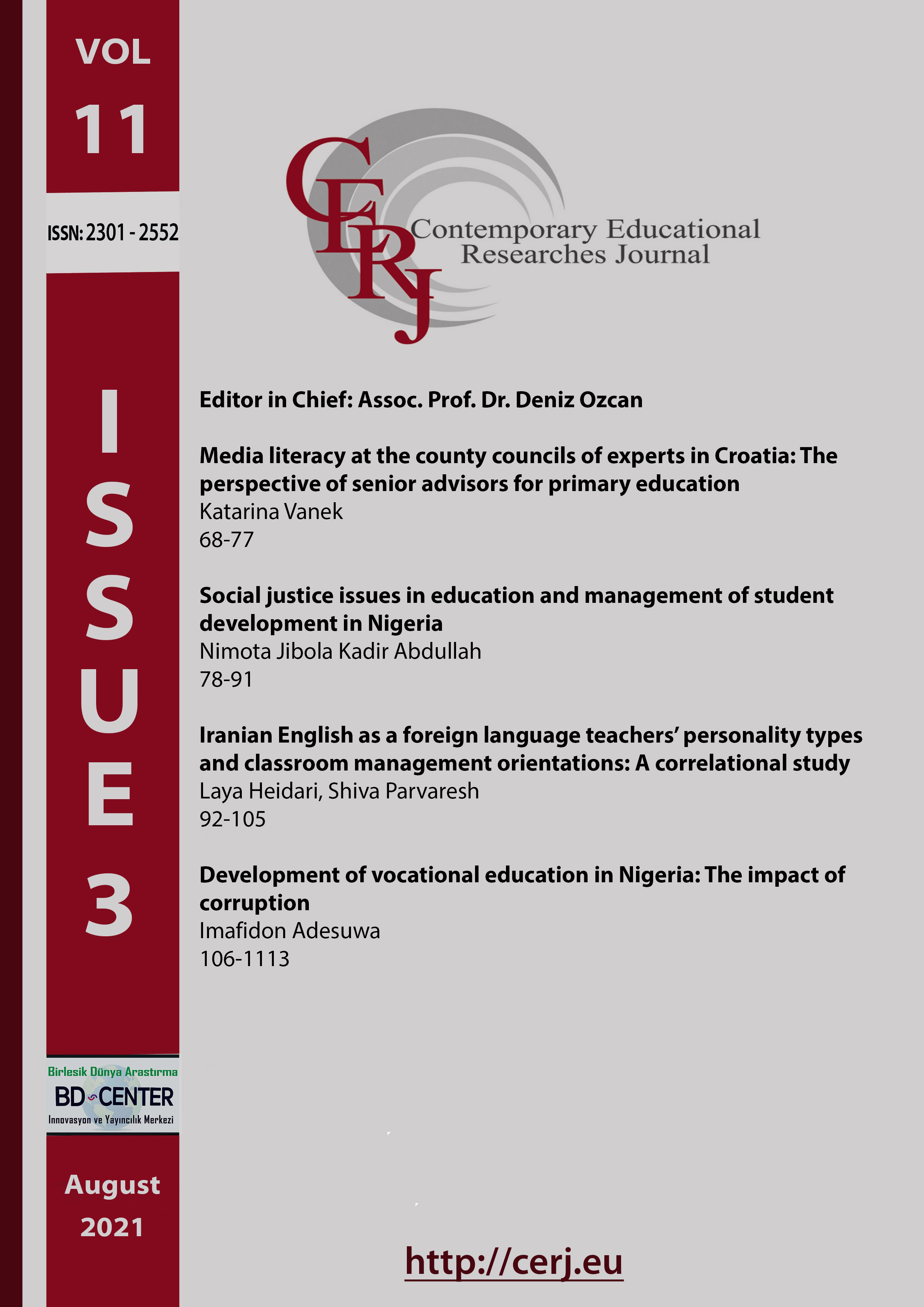Media literacy at the county councils of experts in Croatia: The perspective of senior advisors for primary education
Main Article Content
Abstract
The aim of this paper is to gain an insight into the professional development of Croatian primary education teachers when it comes to informing about media literacy at their County Councils of Experts (CCE) from the perspective of senior advisors for primary education. Five senior advisors were interviewed, and they pointed out that media literacy has sometimes been the topic at the councils, but they consider that it should be more often discussed. The results show that Croatian teachers mostly get information about the theoretical background and present examples of good practice. There are a lot of improvements which might be carried out to encourage media literacy. The results suggest anticipating greater importance to media literacy and the recognition of its importance by the Croatian authorities. Croatian primary education teachers are poorly informed about media literacy at their CCE. These results can be a starting point for further research.
Keywords: Councils of experts, media literacy, primary teachers, senior advisors, professional development.
Downloads
Article Details

This work is licensed under a Creative Commons Attribution 4.0 International License.
Authors who publish with this journal agree to the following terms:
- Authors retain copyright and grant the journal right of first publication with the work simultaneously licensed under a Creative Commons Attribution License that allows others to share the work with an acknowledgement of the work's authorship and initial publication in this journal.
- Authors are able to enter into separate, additional contractual arrangements for the non-exclusive distribution of the journal's published version of the work (e.g., post it to an institutional repository or publish it in a book), with an acknowledgement of its initial publication in this journal.
- Authors are permitted and encouraged to post their work online (e.g., in institutional repositories or on their website) prior to and during the submission process, as it can lead to productive exchanges, as well as earlier and greater citation of published work (See The Effect of Open Access).
